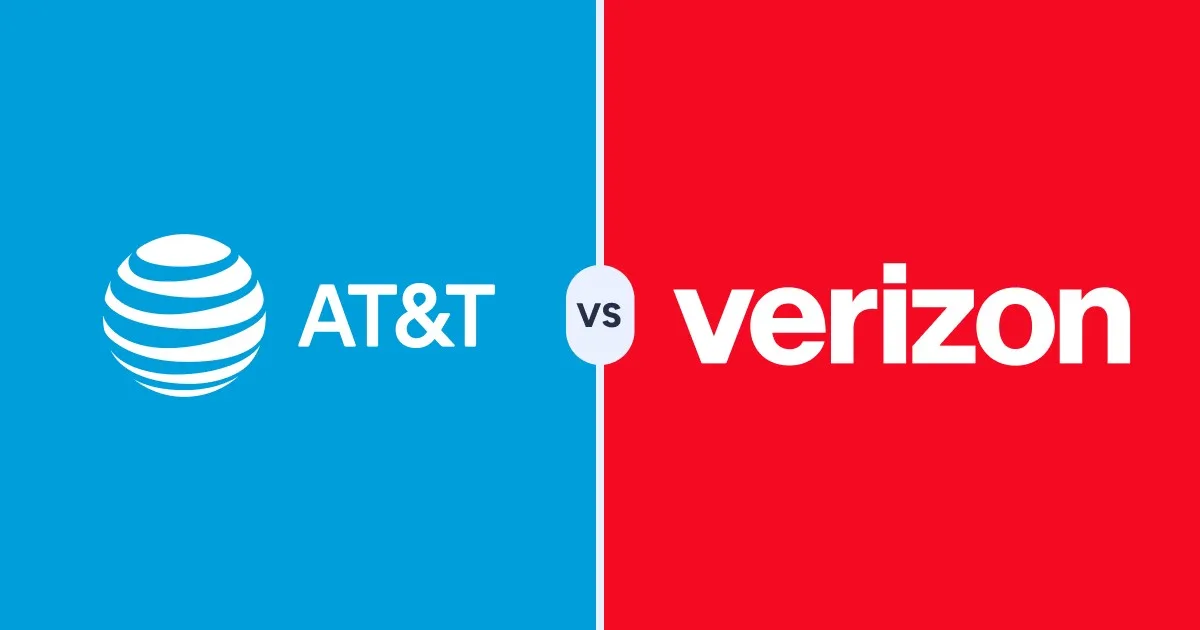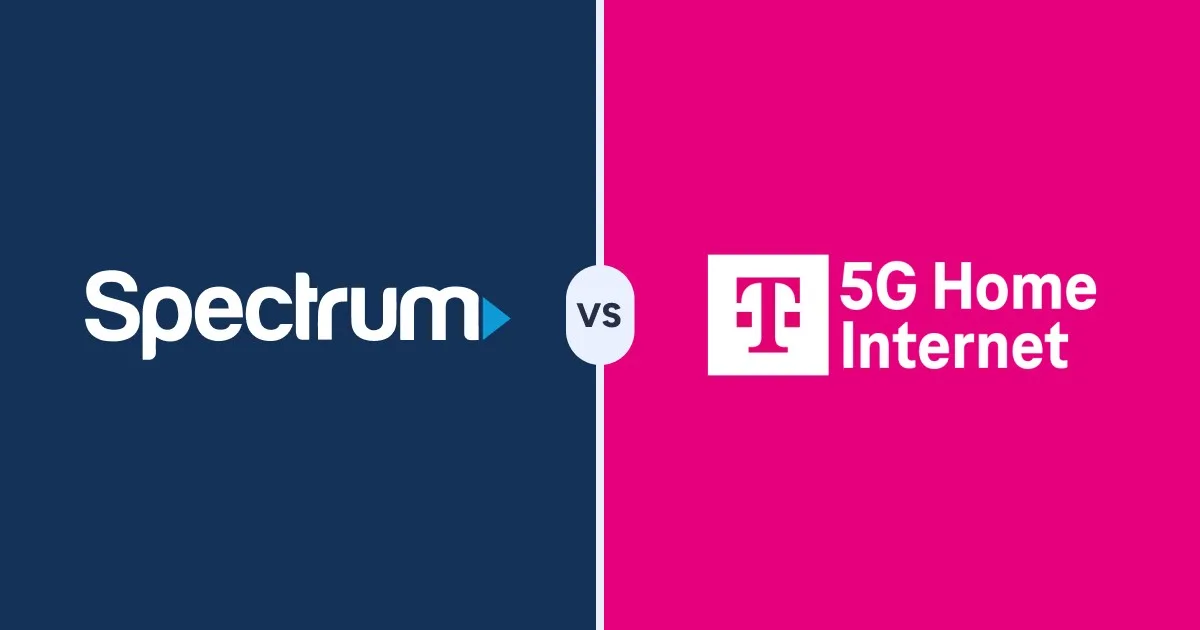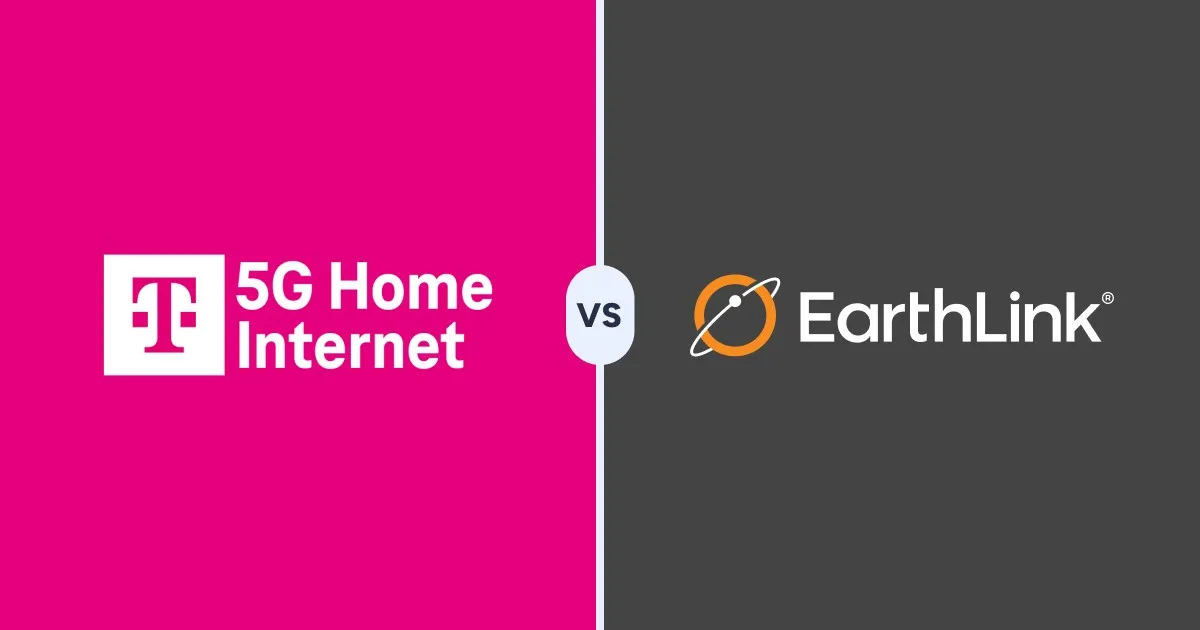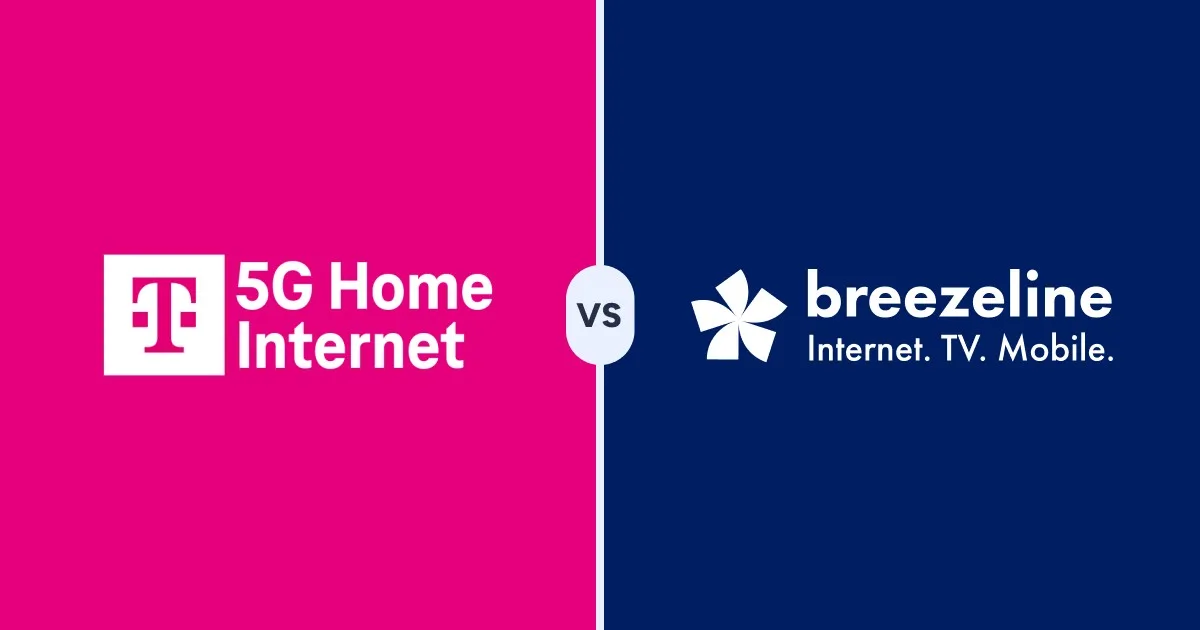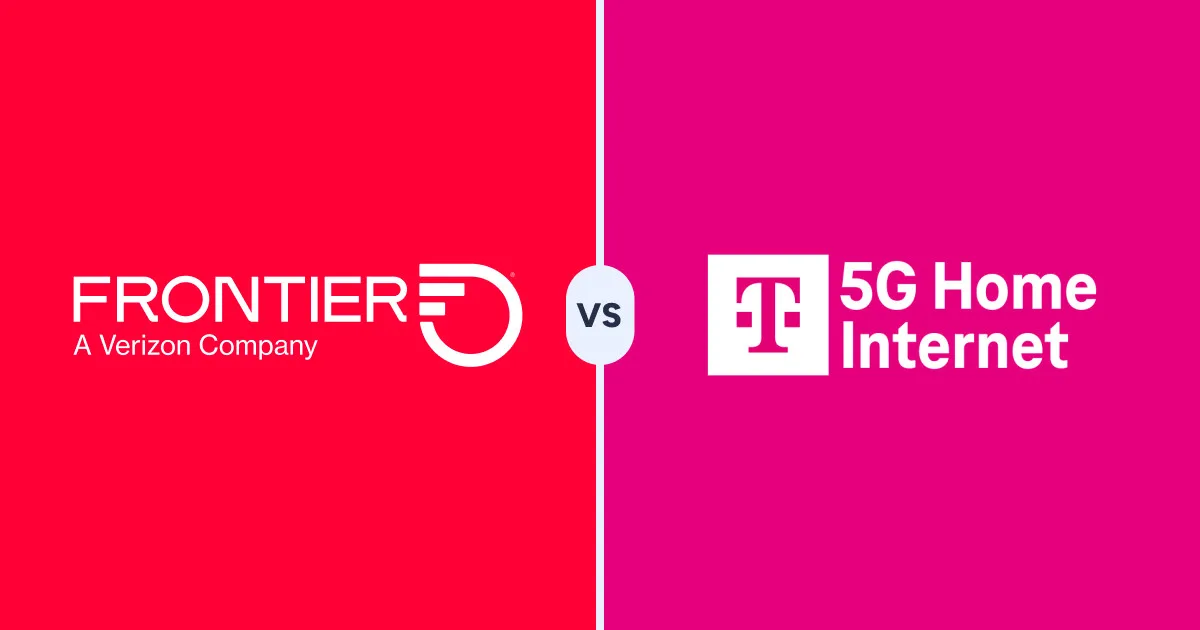Verizon Wireless vs. AT&T Wireless
Get unlimited data and free phones from either, but choose Verizon for perks and reliability
Aug 19, 2025 | Share
Provider Comparisons (Versus)
-
Best for extra perks
- Unlimited plans: Starting at $65.00/mo. per line*
- Family plans: Starting at $30.00/mo. per line
- High-speed data: Unlimited Ultra Wideband 5G
- Hotspot data: Up to 200GB
-
Best for family plans
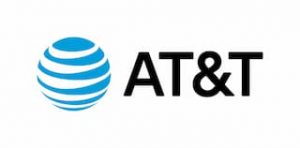
- Unlimited plans: Starting at $65.99/mo. per line†
- Family plans: Starting at $30.99/mo. per line
- High-speed data: Unlimited
- Hotspot data: Up to 60GB
Data as of 08/18/2025. Availability and speed may vary by location, and prices are subject to change. See disclaimers.
Compare Verizon and AT&T head-to-head
Verizon mobile phone service is a better choice than AT&T wireless in most parts of the country, but it’s a close call. Both give you nationwide coverage and unlimited data with a mix of 4G and 5G speeds, and both let you mix and match family plans so you pay only for what you need. But Verizon has slightly better prices, a better reputation for reliability and customer service, and the option to add streaming service subscriptions starting at $10 per month.
Most customers will be happier with Verizon, but AT&T may offer better coverage where you spend most of your time. The size of its 4G network is virtually identical to what Verizon offers, and its 5G network is bigger. Plus, you get slightly better deals if you have a family plan with at least five lines.
If you’re choosing between these two premium networks, you’ll be first in line for connectivity and get great deals on a wide range of smartphones with either. However, you’ll pay premium prices (especially if you’re buying only one line at a time), and may be frustrated with billing practices and customer service experiences. If you’re hoping to save money, consider shopping for an MVNO service. In many cases, you can try one for free for up to a year when you bundle with your home internet service.
Pros and cons: Verizon Wireless vs. AT&T Wireless
Pros
Strong reputation for reliability
Streaming perks starting at $10/mo. each
Excellent hotspot perks
Cons
Smaller 5G network
Ultra Wideband access restricted to premium plans

Pros
Good coverage in rural areas
Better family plans
Solid prepaid plan options
Cons
Poor customer service reputation
Slightly higher prices
In this comparison:
Unlimited plans | Family plans | Prepaid plans | Deals on phones | Coverage | Alternatives (MVNOs) | Home internet bundles | Final call
In this comparison:
Unlimited plans and pricing: Verizon vs. AT&T
All wireless plans from AT&T and Verizon offer unlimited talk and text, and the flagship plans come with unlimited data. But you can get faster speeds and more high-speed hotspot data by paying more.
Verizon’s top plan offers truly unlimited data with access to sweet Ultra Wideband speeds, but you’ll pay about $15 more than you would for AT&T’s premium plan. Meanwhile, AT&T has a bigger 5G network on which to enjoy its unlimited data.

Pro tip: Fast Speeds depend on your device and your location
Carriers like Verizon and AT&T love to talk about their fast 5G speeds, but you will only get top speeds if you live in an area with plenty of up-to-date cell towers. You’ll also need the latest and greatest devices to access elite speeds. If that’s not you, save your money and choose a lower-tier plan.
Verizon unlimited plans and pricing
| Plan | Single-line price | Premium data |
|---|---|---|
| Unlimited Welcome | $65.00/mo.* | None (speeds can slow during network congestion) |
| Unlimited Plus | $80.00/mo.* | Unlimited |
| Unlimited Ultimate | $90.00/mo.* | Unlimited |
Data as of 08/18/2025. Availability and speed may vary by location, and prices are subject to change. See disclaimers.
Verizon’s unlimited phone plans are a little more expensive than AT&T’s, but they give you more to work with. Unlimited Plus and Unlimited Ultimate give you unfettered access to 4G, 5G, and 5G Ultra Wideband (UW) networks. The plans also give you twice as much hotspot data as what you would get from AT&T’s corresponding phone plans.
The lowest-tier unlimited plan, Unlimited Welcome, offers 50GB of premium data and doesn’t include UW access. In other words, the plan will meet your needs, but it’s nothing to write home about.
All Verizon Unlimited plans come with a call filter to block spam calls, free satellite texting, and a three-year price guarantee. You’ll also enjoy solid customer service in case of any issues.
Verizon MyPlan Perks
In addition to the monthly phone plan with Verizon, you can add on packages that give you memberships, subscriptions, or services like hotspot data or unlimited cloud storage. Choose as many as you like.
| Perk | Price |
|---|---|
| Disney Bundle subscription (Disney+, Hulu, and ESPN+) | $10.00/mo. |
| Netflix and Max (with ads) | $10.00/mo. |
| 100GB/mo. mobile hotspot data plan | $10.00/mo. |
| YouTube Premium | $10.00/mo. |
| Apple One subscription | $15.00/mo. |
| Google One AI Premium | $10.00/mo. |
| Apple Music Family subscription | $10.00/mo. |
| Two Numbers One Phone | $10.00/mo. |
| 3 TravelPass days | $10.00/mo. |
| Unlimited cloud storage | $10.00/mo. |
AT&T unlimited plans and pricing
| Package | Single-line price | Premium data* |
|---|---|---|
| AT&T Value Plus℠ VL | $50.99/mo.* | None (speeds can slow during network congestion) |
| AT&T Unlimited Starter® SL | $65.99/mo.* | None (speeds can slow during network congestion) |
| AT&T Unlimited Extra® EL | $75.99/mo.* | 75GB |
| AT&T Unlimited Premium® PL | $85.99/mo.* | Unlimited |
Data as of 08/187/2025. Availability and speed may vary by location, and prices are subject to change. See disclaimers.
AT&T offers dependable rural 4G and fast 5G service nationwide, and plans are fairly priced. Customer service used to have a poor reputation, but may be improving as 5G and fiber internet services become more widely available.
The more you pay for an unlimited data plan from AT&T, the more high-speed data you get. The priciest plan, Unlimited Premium PL, offers truly unlimited premium data, and you can enjoy it on AT&T’s superfast 5G network. You will get video resolution in 4K, to boot!.
AT&T Unlimited Extra EL gets you 75GB of high-speed data before your speeds are throttled—that’s more than enough, unless you spend a ton of time streaming and uploading to social media away from Wi-Fi.
The other two plans don’t guarantee any premium data. That doesn’t mean your speeds will be throttled, necessarily. It just means you won’t enjoy the fastest-possible speeds any time, and your speeds may slow if the network gets busy.
Ready for a new mobile phone provider?
Enter your zip code to shop and compare.
Family plans and pricing: Verizon vs. AT&T
If you ask us, family plans are the best reason to choose a major provider like AT&T or Verizon. They’re also one of the most irritating things about shopping for a new plan because the carrier always shows the multi-line price before revealing single-line pricing. Talk about a bait and switch!
Go in with a little patience and a careful eye for exactly which package you’re looking at, though, and you can save a huge chunk of change. You can also mix and match, so that one family member who scrolls TikTok constantly can have all the premium data they need while Grandma or Grandpa can get away with just enough data to play Sudoku in the grocery line.
Verizon family plans and pricing
| Package | Two-line price per line | Price per line with four lines | High-speed data per line |
|---|---|---|---|
| Unlimited Welcome | $55.00/mo.* w/Auto Pay & paper-free billing discount. | $30.00/mo.* w/Auto Pay & paper-free billing discount. | 50GB |
| Unlimited Plus | $70.00/mo.* w/Auto Pay & paper-free billing discount. | $45.00/mo.* w/Auto Pay & paper-free billing discount. | Unlimited |
| Unlimited Ultimate | $80.00/mo.* w/Auto Pay & paper-free billing discount. | $55.00/mo.* w/Auto Pay & paper-free billing discount. | Unlimited |
Data as of 08/18/2025. Availability and speed may vary by location, and prices are subject to change. See disclaimers.
With Verizon, you get the best prices per line when you have at least four lines. When you do, you can enjoy the Unlimited Ultimate line for a breezy $55 per month, and you’ll still enjoy truly unlimited high-speed data and 200GB of hotspot data. Alternatively, you can pay as little as $30 per month for an Unlimited Welcome line. It’s premium service from a premium provider, at prices that would make even the most budget-friendly competitor wince.
If you’re keeping track, the four-line discount amounts to a savings of $35 per line, compared to the single-line price. If you have two lines, you’ll save $10 per line. With three lines, you’ll save $25 per line.
AT&T Wireless family plans and pricing
| Package | Two-line price per line | Five-line price per line | Data allowance per line |
|---|---|---|---|
| AT&T Value Plus℠ VL | $50.99/mo. per line†| $30.99/mo. per line† | Unlimited (slows if network is busy) | |
| Unlimited Starter® SL | $60.99/mo. per line†| $30.99/mo. per line† | Unlimited (not high-speed) | |
| AT&T Unlimited Extra® EL | $65.99/mo. per line†| $35.99–$65.00/mo. per line† | 75GB before slowdowns | |
| AT&T Unlimited Premium® PL | $75.99/mo. per line†| $45.99–$75.99/mo. per line† | Unlimited Premium Data | |
Data as of 08/18/2025. Availability and speed may vary by location, and prices are subject to change. See disclaimers.
You have to spring for five lines on a single plan to get the best deals from AT&T Wireless. If you do, the cheapest plans (AT&T Value Plus PL and AT&T Unlimited Starter SL) are the same price—a very reasonable $30.99 per line, per month. Go with the Unlimited Starter plan to enjoy 5GB of hotspot data every month.
If you want truly unlimited premium data, you can get AT&T Unlimited Premium PL for $45,99 per line per month. That includes 60GB of hotspot data, which is only a fraction of what you get with Verizon’s premium plan. To be honest, though, it’s still probably far more than you need.
If you get all five lines from AT&T, the per-line discount is $40 per month. With two lines, the discount is $10 per line. For three lines, the discount is $25 per line. With four lines, you get $35 off per line.
Prepaid plans and pricing: Verizon vs. AT&T
Prepaid plans let you skip the credit check, and there’s a good chance you can pay less for similar service. Also known as pay-as-you-go plans, these plans are great for light users and people who spend most of their time connected to Wi-Fi.
You can get prepaid plans from either Verizon or AT&T, but the AT&T plans are cheaper.
Verizon prepaid plans
| Plan | Single-plan price | Data | Hotspot allowance |
|---|---|---|---|
| Verizon Talk & Text | $30.00/mo.§ w/ Auto Pay | None | None |
| Verizon Prepaid 15GB | $35.00/mo.‡ w/ Auto Pay | 15GB | Uses data plan |
| Verizon Prepaid Unlimited | $50.00/mo.‡ w/ Auto Pay | Unlimited | 5GB |
| Verizon Prepaid Unlimited Plus | $60.00/mo.‡ w/ Auto Pay | 50GB Premium data, then unlimited | 25GB |
Data as of 08/18/2025. Availability and speed may vary by location, and prices are subject to change. See disclaimers.
Verizon’s prepaid plans are priced based on standard data, hotspot data, and premium data. Prices are similar to what you can get on postpaid family plans, but don’t come with streaming perks. You can get free phones, but your choices are much more limited than with postpaid plans.
So why bother with a prepaid plan? As mentioned above, these plans let you skip the credit checks, and there are no penalties for non-payment (other than service being shut off). You can also get discounts up to $20 per line, but only after you keep your prepaid plan for nine months and use autopay with a bank account. If you choose an unlimited prepaid family plan, you can also save up to $40 per month with the multi-line discount.
Read your terms and conditions carefully to avoid billing surprises and be prepared to pay an extra $10 on your first month’s bill, but this might be a good way to get the reliability of Verizon’s network without paying high prices for premium postpaid plans.
Prepaid plans from AT&T Wireless
| Plan | Data | Single-line price |
|---|---|---|
| Unlimited + 10GB Hotspot data | 16GB priority data | $25.00/mo. for 12 months* |
| 5GB | 5GB standard data | $30.00/mo.† |
| Unlimited Essentials | 8GB standard data | $40.00/ mo.§ with AutoPay |
| 15GB | 30GB data at 3Mbps, then slows to 1.5Mbps | $40.00/mo. |
| Unlimited Max® + 25GB hotspot data | Unlimited standard data | $55.00/mo. |
| Unlimited Max® Plus + 35GB hotspot data | 50GB standard data | $65.00/mo. |
Data as of 08/18/2025. Availability and speed may vary by location, and prices are subject to change. See disclaimers.
AT&T’s prepaid plans run from very cheap to something closer to what you’d get from the flagship unlimited plans. The cheapest plan requires a year of payments up front, but it’s a terrific bargain. You get only 16GB of priority data and 10GB of hotspot data per month, but that’s all most people need anyway.
Other plans vary based on how much standard data and hotspot data you get, but some come with nice international calling benefits. Plus, you can purchase add-ons for any AT&T prepaid plan, and they can save you big on international roaming fees. You can also purchase prepaid phones from AT&T, but you’ll have a smaller selection than with postpaid plans.
You get unlimited talk and text with any plan, plus standard definition streaming (as long as you have enough data to support it).
Ready to shop wireless plans in your area?
Enter your zip code for a list of local carriers.
Phones deals: AT&T vs. Verizon
AT&T offers iPhones, Samsung Galaxies, Galaxy fold and flip phones, Google Pixels, Motorola razr and moto g, and even dumb phones. It’s possible to pay full price up front, but most phones are also available with monthly pricing and 36-month contracts. Some are available for no monthly fee, though, as long as you bring an eligible trade-in and sign up for three years. You can also save $200 per line (in bill credits) when you order online and get an eligible unlimited plan.
Verizon offers a similar phone selection when it comes to brands and models, but with better options for pre-owned and refurbished devices. It also offers more free phones with trade-in, if you want the latest and greatest, or budget phones for free if you don’t have an old phone you’re willing to give up.
Phone locking policies
With either AT&T or Verizon, you could be charged the remaining balance on the phone if you stop your service plan before the phone is paid off. However, it’s riskier to buy a phone with AT&T because the company won’t unlock it until it’s paid off. That means you won’t be able to use the device with a different carrier or even a different plan (such as an AT&T prepaid plan). The company may also re-lock a phone if your account isn’t in good standing.
With Verizon, purchased phones get unlocked automatically after 60 days, even if they’re on installment plans or prepaid lines. This makes buying and selling used Verizon phones much simpler.
Of course, you could always buy a phone outright from the manufacturer or reseller. That way, it’s unlocked for any carrier, you don’t have to worry about interest fees or bill credits, and you can sell it any time.
Coverage: Verizon vs. AT&T
Verizon and AT&T both offer nationwide coverage, but have different strengths. AT&T has a bigger 5G network and runs FirstNet, a service built specifically for first responders and public safety teams. That means its network in rural areas may be more robust.
However, Verizon has a better reputation for reliability. Verizon also has a slightly larger 4G network and recently set a new speed record on its 5G network.
Both companies lag behind T-Mobile, which has the largest 5G network in the U.S. and regularly wins awards for providing the fastest available speeds.
All that said, coverage varies based on your exact address. The hard truth is that you have to either talk to your neighbors or experiment on your own to find out which carrier has the best service in your area.
Home internet bundles
Getting home internet and mobile phone service from the same company can be a great way to save money. Both AT&T and Verizon offer fast fiber internet, available only in certain areas, and fixed wireless home internet, available anywhere there’s excess capacity on local cell towers.
If you bundle with AT&T (either AT&T Fiber or AT&T Air), you can get 20% off your mobile phone bill. If you bundle with Verizon, you can get $15 off your home internet service (either Verizon Fios or Verizon 5G Home Internet).
When you take advantage of these deals, you can enjoy premium cell phone service backed by reliable home internet, plus great deals on devices and streaming services.
Score great perks every month
Verizon is known for its epic giveaways for new customers, but AT&T doesn’t slack off on goodies like rewards cards and free service when you sign up.

- Get a reward card worth up to $200 when you sign up for 2-Gig or 5-Gig plan from AT&T Fiber by June 1, 2026
- Save 20% every month when you bundle unlimited wireless with home internet from AT&T
- Get up to $20 off your AT&T fiber internet plan every month for a year
- Get a 43-inch Samsung TV or a Samsung Galaxy Tab S10 when you order Verizon Fios 1 Gig or 2 Gig between Feb. 5 and April 1
- Get $15 off home internet every month when you bundle with Verizon MyPlan
- Get six months of Apple One included with a new 5G Home Ultimate Plan from Verizon when you order between Feb. 5 and April 1
Get the same coverage for half the price with an MVNO
AT&T and Verizon are big names, but did you know there’s a way to benefit from their networks without paying premium prices? MVNOs rent space on the big mobile networks to bring you heavily discounted cell service.
You may experience slower speeds and less reliable reception since MVNO data is deprioritized compared to major network data. However, we’ve tested a handful of MVNOs and learned that other factors—such as your device and your proximity to the nearest cell tower—matter a lot more when it comes to actual speeds.
Here’s a look at the best MVNOs associated with each major cellular carrier—Verizon, AT&T, and T-Mobile.
| MVNO carrier | Network | Starting price per line | Shop now |
|---|---|---|---|
| Visible | Verizon | $25.00/mo.* | View Plans for Visible |
| Cricket Wireless | AT&T | $15.00/mo.† | View Plans |
| Mint Mobile | T-Mobile | $15.00/mo.‡ (for 3 mos.) | View Plans for Mint |
Data as of 08/18/2025. Availability and speed may vary by location, and prices are subject to change. See disclaimers.
Visible: Unlimited data and hotspot perks
The best MVNO for Verizon is Visible. It’s been around for years, and it’s wholly owned by Verizon, but its plans are a great bargain. They come with unlimited mobile data and hotspot data, but speeds are much slower than you’d get from Verizon itself.
Cricket Wireless: Affordable pricing and lots of options
Cricket Wireless, which uses AT&T’s nationwide network, gives you plenty of plans to choose from—Cricket even has its own 5G phone. Cellular plans range in price from $15 to $60 per month, with plenty of data coming from even the lower-tier plans.
Cell service on a Cricket plan can be hit or miss, but it probably won’t be a problem if you live in an area with solid AT&T coverage. And you really can’t beat the price.
Mint Mobile: Dirt-cheap deals and Wi-Fi calling
Mint Mobile works over T-Mobile, and it gives you some of the cheapest prices you can find from any cellular provider. The cheapest plan is just $15 per month, giving you 5GB of premium data and 5G access in areas where 5G is available.
The plans all come with Wi-Fi hotspot capability at no extra charge. And if you’re in an area with no cell reception, a Mint plan lets you make calls and send texts over a Wi-Fi connection.
Final call: Verizon vs. AT&T
This is a very close race, but Verizon is the slightly better option. The reputation for reliability is better, some plans are slightly cheaper, customer service is better, and you can enjoy sweet sign-up offers. Plus, new phones get unlocked after six months, giving you back your freedom to shop with other providers if you so choose.
AT&T has a lot going for it, too, and it may offer better service in rural areas. It’s prepaid and family plans are definitely worth a look.
FAQ about Verizon vs. AT&T
Can I bring my own phone to AT&T or Verizon?
Can I keep my phone number if I switch to Verizon or AT&T?
Disclaimers
Top plans
* Verizon Unlimited
- With paper-free billing and Auto Pay. Plus taxes & fees.
† AT&T Unlimited
- 5G coverage not available everywhere. Requires compatible device/service. Other terms and restr’s apply. Data charges may apply.
Prepaid plans
* Unlimited + 10GB Hotspot data
- After 16GB, speeds slowed to max 1.5Mbps for the month. Req’s new single line and $300 upfront. Taxes, fees, terms & restr’s apply.
† 5GB
- Requires new single line. Taxes and fees extra. Terms & restrictions apply.
§ Unlimited Essentials
- $50/mo. without AutoPay. 30GB/mo. at max 3Mbps, then speeds slowed to max 1.5Mbps. New single line only. Taxes & fees extra. Terms & restrictions apply. See details
MVNO plans
* Visible
- Taxes and fees included. Welcome discount applied.
† Cricket Wireless
- 5G requires a compatible device and is not available everywhere.
‡ Mint Mobile
- Upfront payment of $45 (equivalent to $15/mo.) required. Promotional rate for first 3 months only. Taxes & fees extra. Limited time new customer offer; non-transferrable & no cash value. Unlimited customers using >40GB/mo. will experience lower speeds. Videos stream at ~480p
Author - Chili Palmer
Chili Palmer covers home tech services, with a special focus on understanding what families need and how they can stay connected on a budget. She handles internet access and affordability, breaking news, mobile services, and consumer trends. Chili’s work as a writer, reporter, and editor has appeared in publications including Telecompetitor, Utah Business, Idaho Business Review, Benton Institute for Broadband & Society, and Switchful.com.
Editor - Jessica Brooksby
Jessica loves bringing her passion for the written word and her love of tech into one space at HighSpeedInternet.com. She works with the team’s writers to revise strong, user-focused content so every reader can find the tech that works for them. Jessica has a bachelor’s degree in English from Utah Valley University and seven years of creative and editorial experience. Outside of work, she spends her time gaming, reading, painting, and buying an excessive amount of Legend of Zelda merchandise.
